Assad’s ouster and the ever-changing world for Bangladesh
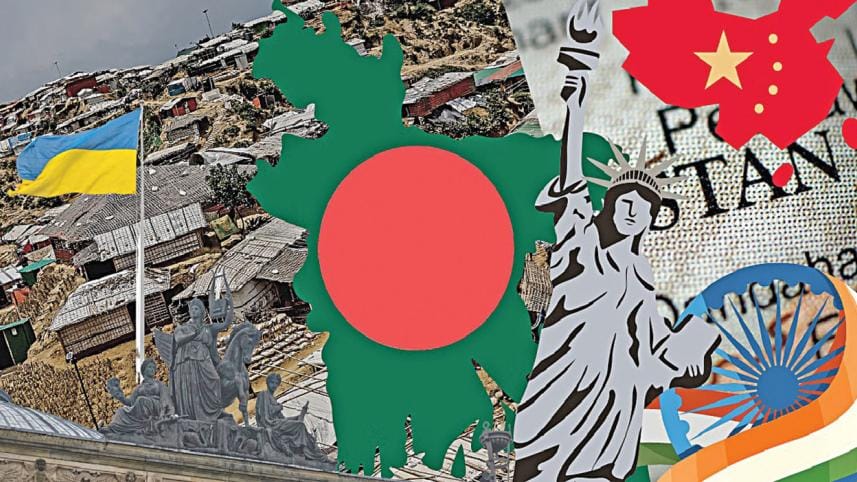
No two regime-toppling events are similar, yet there are some uncanny resemblances between the overthrow of Bashar al-Assad and Sheikh Hasina. Both seemed invincible but fell like a house of cards, clung to power for long yet disappeared within days, claimed popularity yet had little knowledge of how unpopular they had become. Both felt they stood on sturdy daises, but they were moth-eaten ones to the core. Both convinced themselves that they controlled the narrative yet were unaware that nobody trusted them. Both felt they were irreplaceable figures of history, but were replaced within days of their defeat without their people batting an eye. Both believed that ruling their people was their God-given right, hence they didn't need to take their people's mandate. So brutal, atrocious and heartless were their reigns that both had to flee and seek asylum abroad. They had no place in their countries, which they both thought they owned.
The Syrian revolution is the latest piece in the ever-changing world that Bangladesh will have to deal with as it forges ahead. The big question is: do we have the requisite expertise for it?
Foreign policy is among the least discussed subjects in Bangladesh. It is always shrouded in the mist of bureaucratic maze. In the 33 years of my experience with this daily, I cannot recall a single instance where foreign policy was discussed by the government in any public forum. Our parliament failed itself and the voters by never bringing it up in the House. Discussions by private think tanks or newspapers could go only so far.
None of the reform commissions is on foreign policy. This is indicative of our own sense of priority—or the lack of it. If not a commission, we could at least have officially brought some of our former foreign secretaries, senior bureaucrats, former ambassadors, academicians and security experts together to discuss how to navigate through the ever-changing geopolitical reality.
Take our relationship with India. One look at the map will tell you how vital, complex, multi-faceted and intricate our geolocation is, and the high-quality multidisciplinary expertise we need to get the best deal for ourselves. I have often wondered why we don't have specialised institutes to study our foreign relations, especially with our big neighbour. Do we really know what our only other neighbour is all about? The Rohingya issue should have driven home the point that we need geopolitics to solve it a long time ago.
Every university of repute should have courses that could produce specialists on these issues. The rise of the Arakan Army, which now controls our border with Myanmar, has suddenly brought home a new reality. Do we have the expertise to handle it, or even understand it?
In my long years as the editor of The Daily Star, I realised that when we talk about relations with India, we most often think of New Delhi and Kolkata and at best Mumbai. We have very little idea of South India where India's IT hub is located, and from where our startups and IT entrepreneurs could have learnt. How do we forge a new, win-win, non-hegemonistic and mutually beneficial and respectful relationship with India? The answer is clearly knowledge, competence and belief in ourselves. While we have the latter, we need significant work on the first two. We need coolheaded experts to sit together, do all the calculations, make the facts public, and make a stable and mutually beneficial relationship that benefits us both. Any one-sided agreement is bound to fail.
The just concluded trip by the Indian foreign secretary, we ardently hope, will mark some progress in our relationship that has shown some disturbing signs lately. Honestly, we have been totally outraged and deeply disappointed at the depiction of Bangladesh by the Indian media.
Take the case of the repercussions of the Syrian regime change. What was Russia's role in the sudden collapse of its long term ally—Assad—to maintain whom Putin invested hundreds of billions? The common wisdom is, the Ukraine war drained too much resources from Russia. He needed to make a choice about allocating additional resources, and he chose Ukraine. So what will be Russia's new strategy? Will it abandon Syria?
What is the story of Iran? It did extend all its support to Assad and for a while felt comfortable being on the winning side. The destruction of Hamas in Gaza and subsequent diminishing of Hezbollah in Lebanon—both being integral parts of the forces that helped Assad stay in power—created the opening for the rebels to make their breakthrough. The impact on Iran is still not clear, but it definitely stands weakened.
Israel's bombing of Syrian military assets—480 airstrikes in 48 hours—is the clearest indication of how this war-mongering country is taking advantage of the situation. It has been more than a year since it started carrying out the most cruel and destructive bombing and killing of the Gazans.
Then it invaded Lebanon and killed thousands of ordinary citizens in the name of destroying Hezbollah. Israeli soldiers were spotted way into the Syrian territories around the Golan Heights, which President Donald Trump allowed Israel to annex during his first term. Israel is indiscriminately attacking some of its neighbours with complete impunity—without the UN Security Council condemning it for such a blatant violation of international law.
What its policy will be vis-à-vis Iran is the big question. When a country's foray inside other countries goes unchallenged, in fact encouraged, how far it will take its aggression remains unclear. History has very dangerous lessons in this regard.
Türkiye has definitely emerged as a more active player with its president now holding more cards than before.
Relations with the US under President Trump will be quite a challenge for Bangladesh. The former prime minister's offensive and unexplained comments on the US has left a bad taste in the mouth of the State Department officials. Trump's message on X before the election clearly shows the nature of our future challenge.
Our only counterbalancing factor is the respect that Chief Adviser Prof Muhammad Yunus enjoys in the US, being one of the very few recipients in US history of the two highest civilian medals: the Presidential Medal of Freedom in 2009 and the Congressional Gold Medal in 2010. Both were bipartisan honours.
It is this uncertain world that Bangladesh's foreign policy will have to navigate. The first and the most important thing we have to understand is that whatever emotion and feelings that may drive us in domestic affairs, when dealing with foreign policy, we need pragmatism. There is, of course, our own idealism and world view, but the only way forward is being a realist. While flexing muscle can be an option for the big powers, for us, making our case logically, factually and convincingly and gathering global opinion to back it is the only answer.
The new Bangladesh must persuasively tell its story to the world. It must be able to convince others that we want to build a free, just, inclusive, tolerant, equal and democratic society internally, and a peaceful and just international order globally. For that, words and speeches are not sufficient. We need performance that produces powerful facts, and for that we need all-round expertise.
Mahfuz Anam is the editor and publisher of The Daily Star.
Follow The Daily Star Opinion on Facebook for the latest opinions, commentaries and analyses by experts and professionals. To contribute your article or letter to The Daily Star Opinion, see our guidelines for submission.




 For all latest news, follow The Daily Star's Google News channel.
For all latest news, follow The Daily Star's Google News channel. 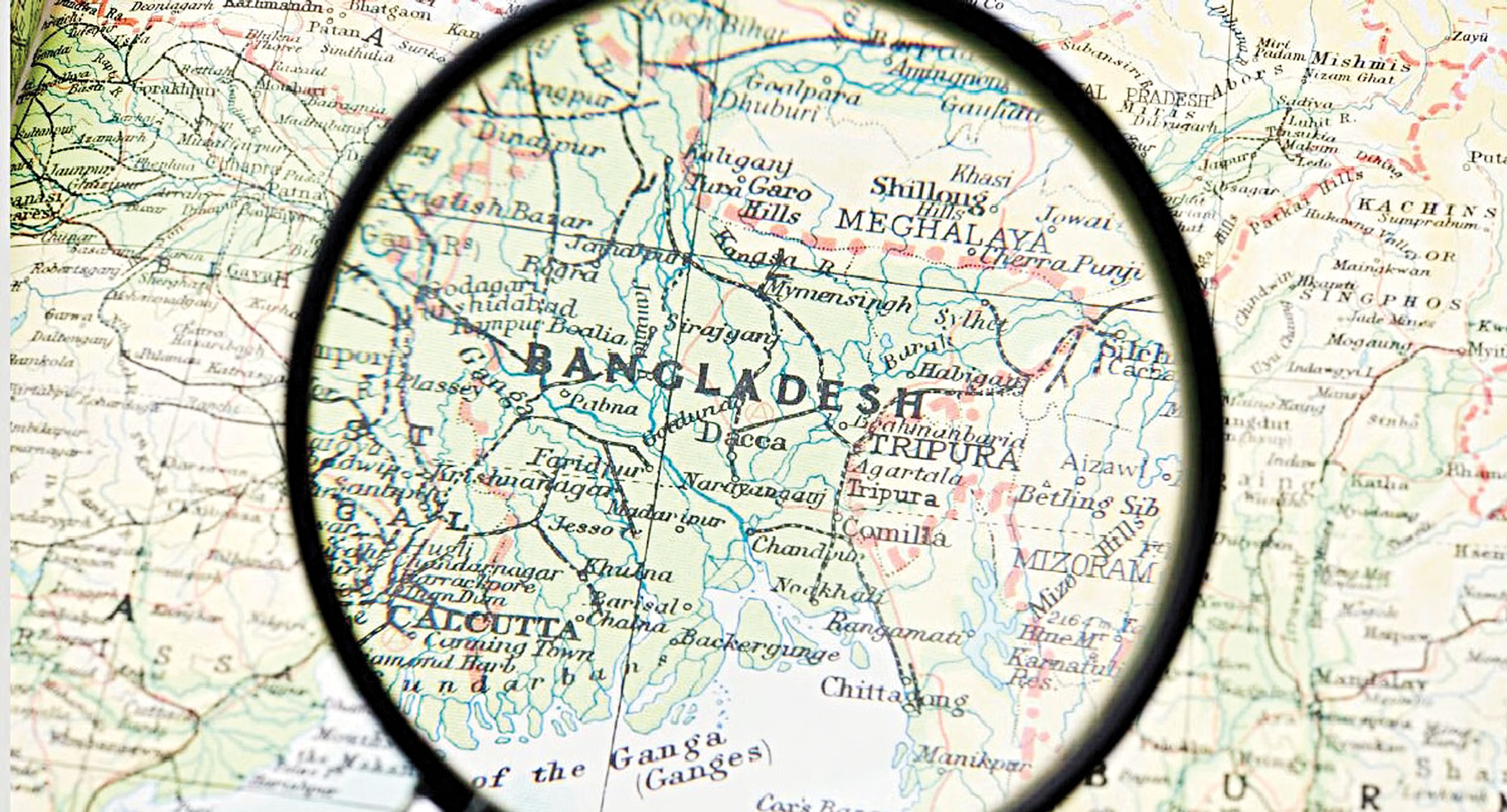
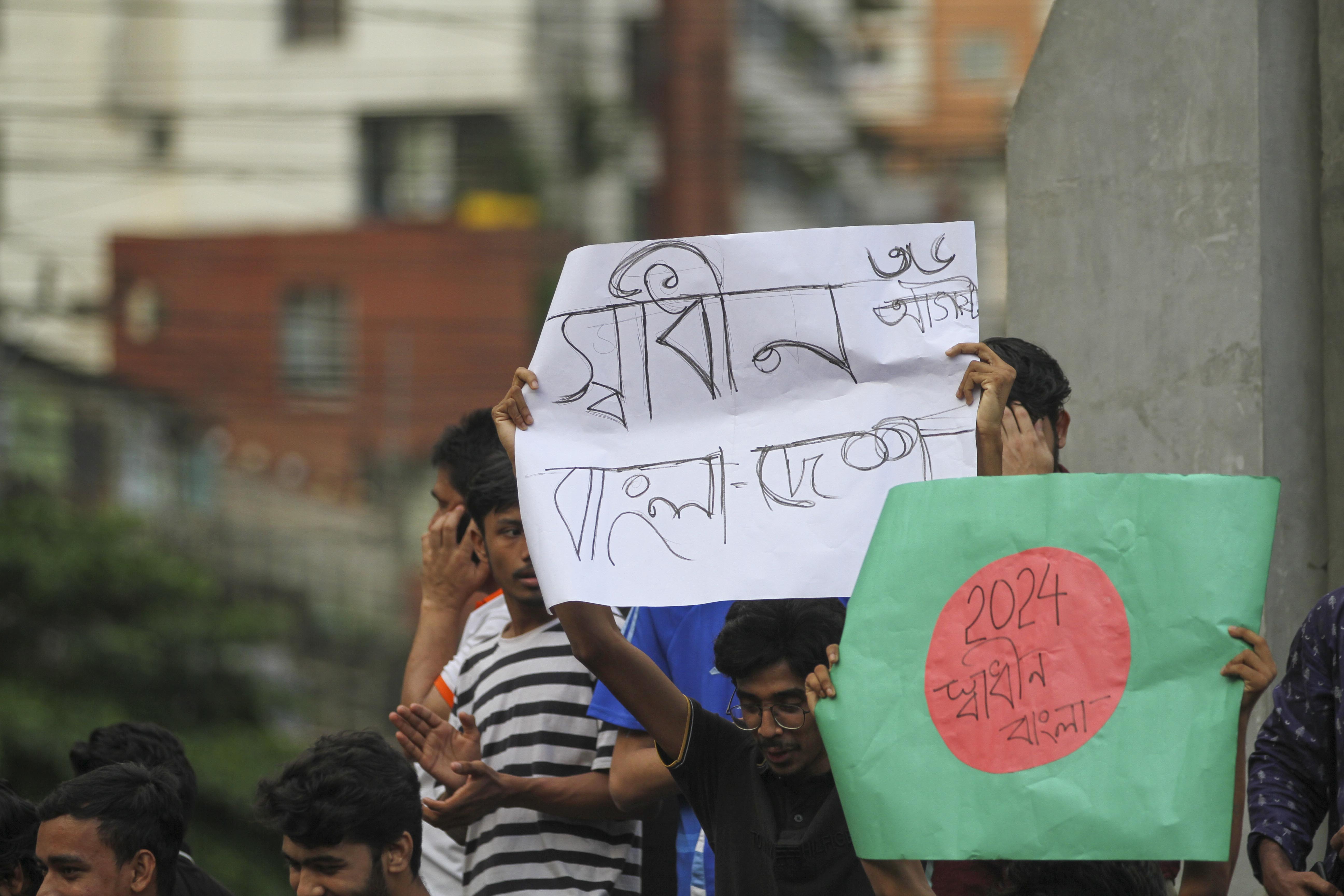
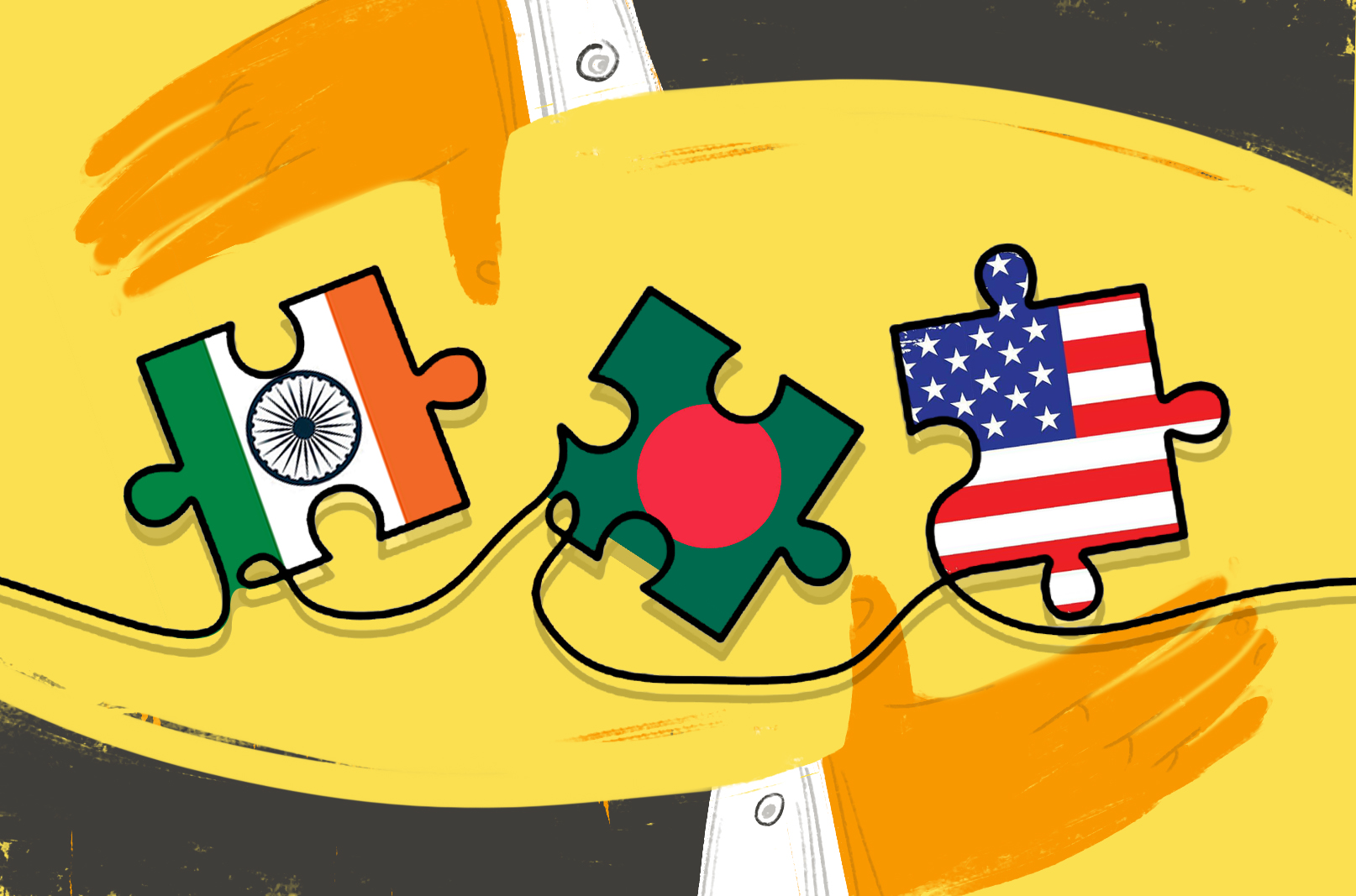
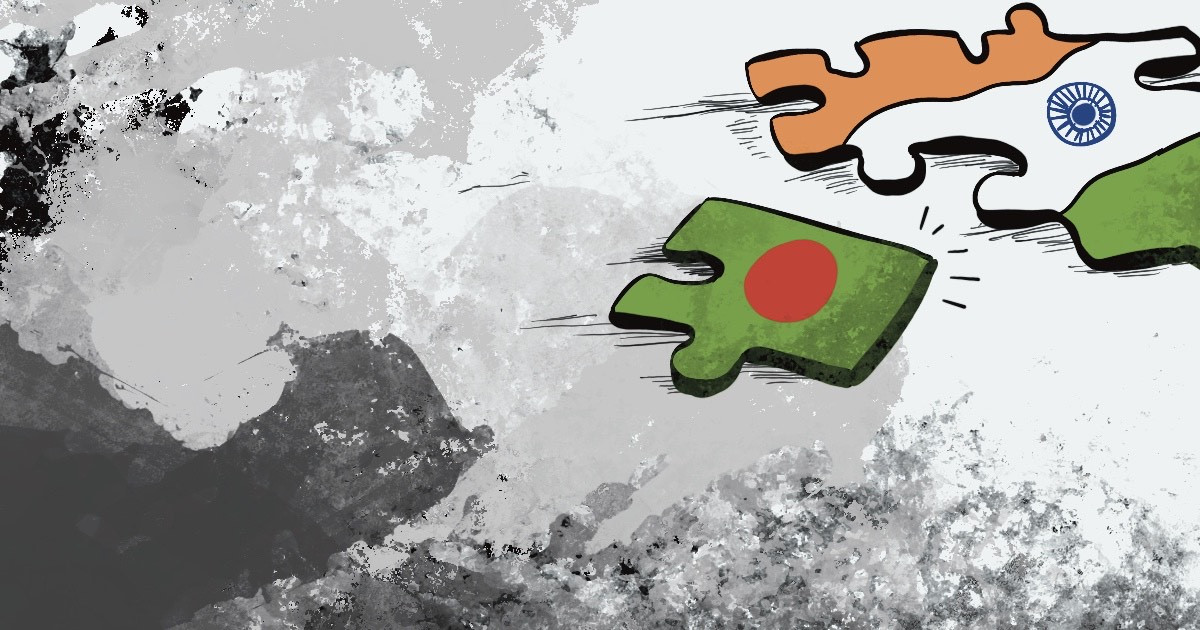
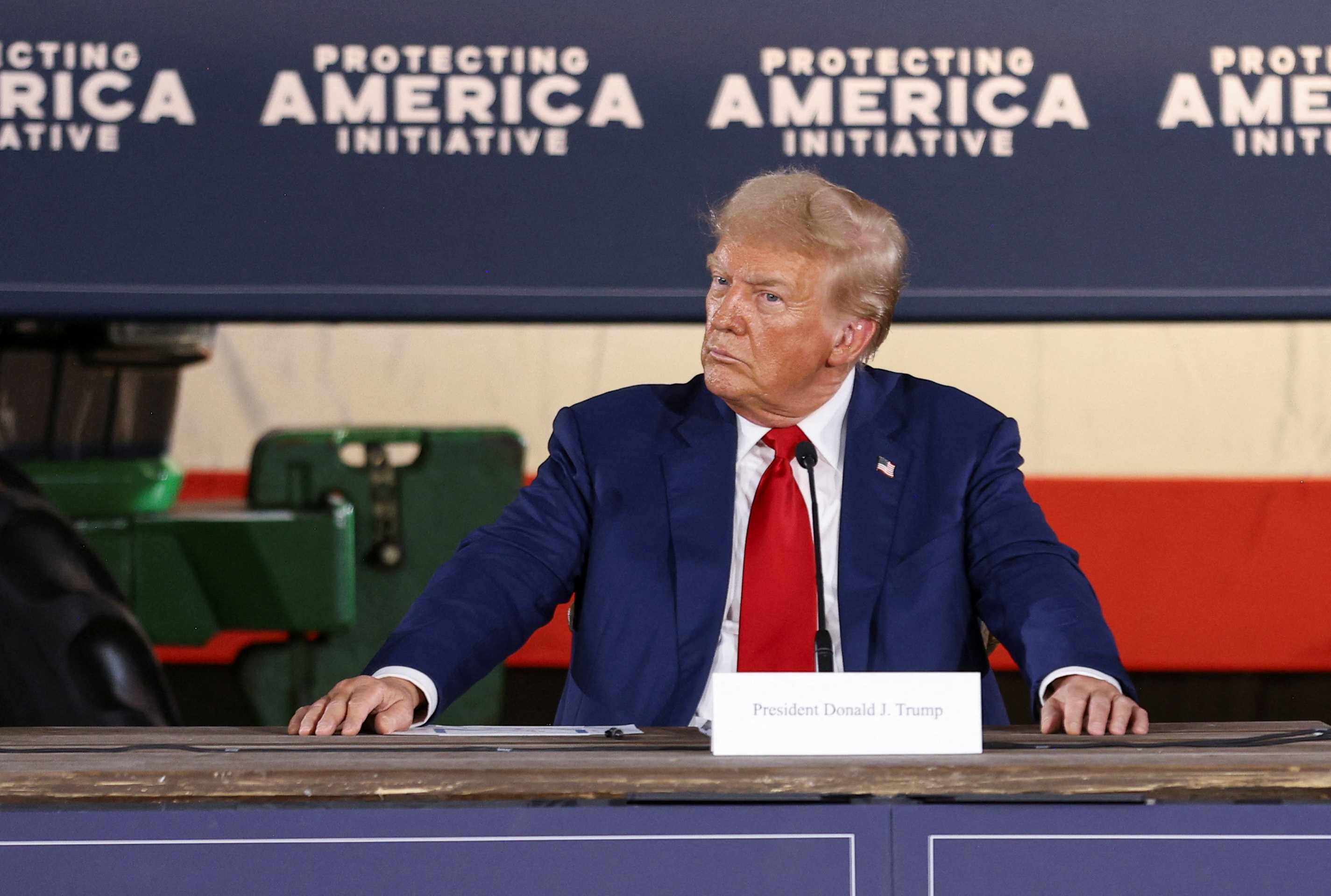
Comments